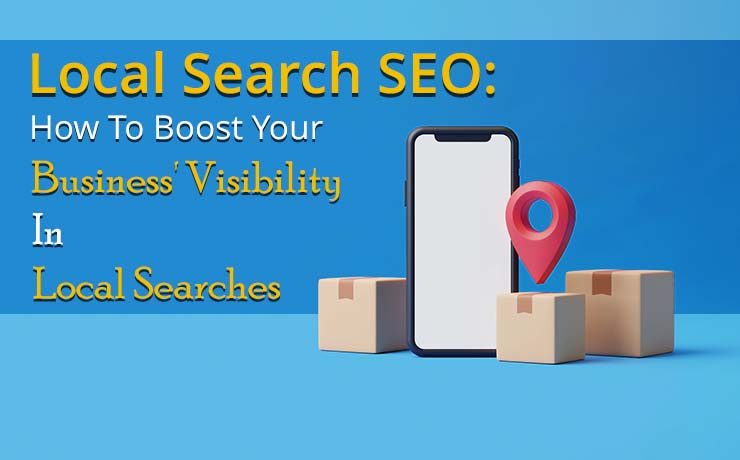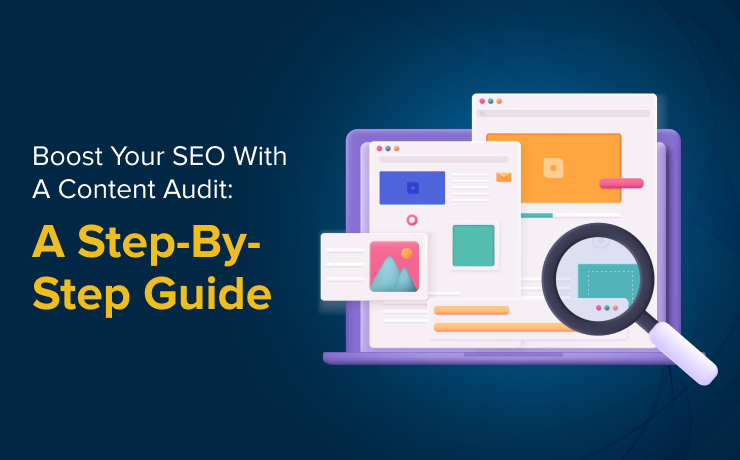Local Search SEO: How to Boost Your Business’ Visibility in Local Searches

Clement Foo
Senior Digital Content Manager

As a local business owner, your goal isn’t just to attract visitors to your website—it’s to draw foot traffic through your doors and establish yourself as the go-to option in your community. How do you make that happen in a world where search engines are often the first stop for anyone looking for nearby services? That’s where local search SEO comes into play.
In this post, we’ll break down actionable tactics to boost your business’s visibility in local search results, helping you stand out and attract customers in your area. Let’s dive in!
What Is Local SEO and Why Does It Matter?
Local SEO focuses on improving your visibility in search engine results for a specific geographic area. If you’ve ever searched for “coffee shops near me” or “best dentist in [city],” you’ve seen local SEO in action. It’s how businesses connect with people nearby who need their services.
Why does it matter? Because local searches often lead to action. A large percentage of users who search for local businesses visit one within a day. If your business doesn’t appear in these results, you’re losing out to competitors.
Local SEO ensures that when people in your area search for services you offer, they find you first. Focus on connecting with the right customers at the right time.
Optimize Your Google Business Profile (GBP)
Your Google Business Profile is a cornerstone of local SEO. When someone searches for businesses like yours, your GBP listing can help them find everything they need to visit or contact you.
Steps to Optimize:
- Claim and verify your profile if you haven’t already.
- Enter the latest and most accurate details, including your phone number (NAP), business name, and address across all platforms.
- Upload high-quality photos of your products, storefront, or services.
- Use relevant categories and include a compelling business description with local keywords.
- Encourage happy customers to leave reviews—and don’t forget to respond to them!
Pro Tip: Regularly update your GBP with posts about promotions, events, or new services. Fresh content can improve your visibility.
Focus on Local Keywords
General keywords are great, but local keywords are what make your business stand out in specific areas. Think about what your potential customers might type into the search bar.
How to Identify Local Keywords:
- Use tools like Google Keyword Planner or SEMrush to find terms with “near me” or specific city/town names.
- Include these keywords naturally in your website’s content, including headings, meta descriptions, and image alt text.
- Create blog posts or landing pages targeting popular local searches, such as “Best pizza in [Your City]” or “Affordable HVAC services in [Neighborhood].”
Pro Tip: Don’t forget long-tail keywords! These often capture specific intents like “late-night coffee shop in downtown Phoenix.”
Build Local Citations
Local citations are mentions of your business’s NAP details on various online directories, such as Yelp, TripAdvisor, and the Better Business Bureau.
How to Build Citations:
- Submit your business to reputable directories.
- Check that your NAP is consistent everywhere.
- Avoid duplicate listings, which can confuse search engines and harm your ranking.
Pro Tip: Use tools like Moz Local or BrightLocal to find and manage citations efficiently.
Local SEO for Service-Area Businesses
Local SEO is important for service-area businesses (SABs) like plumbers, electricians, and landscapers. Unlike brick-and-mortar stores, SABs serve customers across multiple locations, making it important to optimize your online presence for these areas.
Tips for SAB Local SEO Success:
- Set Up Service Areas in Your Google Business Profile (GBP): GBP allows you to define your service areas instead of listing a physical address. This helps customers in those areas find your business.
- Create Location-Specific Pages: Build pages on your website targeting each city, town, or neighborhood you serve. Include localized keywords like “plumbing services in [City].”
- Use Local Keywords in Content and Ads: Include terms like “24/7 electrician near me” or “landscaping in [Area]” on your site, ads, and blogs.
Get Reviews (and Lots of Them!)
Customer reviews not only influence potential buyers but also signal to search engines that your business is trustworthy.
How to Gather Reviews:
- Politely ask happy customers to leave a review on Google or Yelp.
- Make it easy by sending follow-up emails with direct links to review platforms.
- Showcase your best reviews on your website and social media.
Pro Tip: Respond to all reviews—good and bad. A thoughtful response shows customers (and Google) that you care about feedback.
Create Locally Relevant Content
Content is still king—but in local SEO, it’s all about creating content that resonates with your community.
Content Ideas:
- Blog about local events, partnerships, or charities you support.
- Write guides that are specific to your area, like “Top 5 Hiking Trails in [City].”
- Share customer success stories or case studies that highlight your work in the community.
Pro Tip: Collaborate with local influencers or businesses to expand your reach and generate backlinks.
Leverage Social Media for Local Engagement
Social media is an excellent way to connect with your community and drive local traffic to your site.
Tips for Social Success:
- Use geotags when posting on Instagram or Facebook.
- Share behind-the-scenes content that gives your audience a personal connection to your business.
- Promote local events, sales, or partnerships.
Pro Tip: Engage with your followers by responding to comments and messages quickly. This builds trust and encourages word-of-mouth marketing.
Ensure Mobile-Friendliness
Most local searches happen on mobile devices. If your site isn’t mobile-friendly, you’re likely losing potential customers.
How to Optimize for Mobile:
- Use a responsive design that adjusts to any screen size.
- Make sure your site loads quickly (under 3 seconds).
- Keep navigation simple and include click-to-call buttons.
Pro Tip: Test your site’s mobile-friendliness with Google’s Mobile-Friendly Test tool.
Leverage Structured Data Markup
Structured data helps search engines better understand your site’s content, which can improve your visibility in local search results.
Steps to Implement:
- Use schema markup for your NAP details, business hours, and customer reviews.
- Add local business schema to help search engines display rich snippets for your site.
- Use tools like Google’s Structured Data Markup Helper to simplify the process.
Pro Tip: Regularly test your schema markup with Google’s Rich Results Test to ensure it’s error-free.
Engage with Your Community Offline
Believe it or not, your offline efforts can also impact your online presence. Engaging with your community strengthens your brand and boosts your reputation.
Ideas for Offline Engagement:
- Sponsor local events or sports teams.
- Host workshops, fundraisers, or open houses.
- Collaborate with other local businesses for co-promotions.
Pro Tip: Share photos and stories from these events on your website and social media to tie your offline efforts to your online strategy.
Monitor and Improve Your Local SEO Performance
You can’t fix what you don’t measure. Keep an eye on your local SEO performance and make improvements as needed.
Tools to Use:
- Google Analytics to track website traffic.
- Google Search Console to monitor search performance.
- Local rank trackers like BrightLocal to see where you stand in local search results.
Pro Tip: Regularly audit your site and GBP to ensure they’re aligned with the latest SEO best practices.
Improving your local SEO takes time and consistent effort, but the rewards are worth it. By implementing these tactics, you’ll position your business to stand out in local search results, attract more customers, and establish a strong presence in your community.
Need help developing a local SEO strategy? Reach out to our team of experts—we’re here to help your business thrive in search engines and beyond!
 Free
Consultation
Free
Consultation Free
Google Ads Audit
Free
Google Ads Audit







